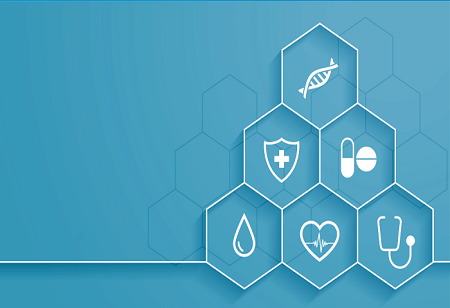
Blockchain, the technology made famous by Bitcoin, is currently making waves in every industry. Blockchain has been utilised to speed up various business activities in a number of industries, including finance, real estate, food, jewellery, and others. However, by providing a number of advantages, this technology is also revolutionising the pharmaceutical sector. In light of current world developments, the pharmaceutical industry needs a more efficient and dependable management structure. One sort of technology, blockchain, may enhance efforts to track down and address problems in the pharmaceutical supply chain. Additionally, there is a requirement for increased data protection and privacy when it comes to pharmaceutical R&D, clinical trials, etc. Because of its security features, blockchain technology is perfectly suited for handling this sensitive data.
A special combination of features offered by blockchain technology makes it appropriate for a wide range of applications across different industries. The use of this technology is being investigated by a number of pharmaceutical businesses as a more secure business solution that could address some of the major issues facing the traditional pharmaceutical sector, such as supply chain disruption, data discrepancy, stagnation, and low scientific output.
Some of the major use cases of blockchain technology in the pharma industry include:
Supply Chain Tracking
The pharmaceutical industry's existing supply chain issues can be resolved by blockchain technology. The technology's improved capabilities lay the groundwork for complete traceability of medications, from manufacturers to end users, as well as the capacity to identify the precise point at which the pharmaceutical supply chain fails in the event of a problem. Every time the drug is handled, from production, shipping, and registration through warehousing and sales, each transaction will be logged into the blockchain and tracked if a drug supply chain is constructed on it and kept track of. The blockchain technology could make it possible to identify the last stakeholders that a product travelled through in the event that there was ever an issue with the delivery of drugs or treatments.
Blockchain might also be used for cold chain tracking, which enables producers to monitor and confirm the consistency of medications' temperature along the supply chain in accordance with policies and criteria established by groups like the FDA and WHO. As prescription goods can be monitored from production till they reach patients' hands, blockchain technology may be able to aid in the prevention of diversion and counterfeiting.
Accelerating Drug Research
The Pharma sector is able to advance drug research and development due to blockchain technology's capacity to transport data securely over a large network. It enables remote drug researchers to readily share information and work together to discover new drugs more quickly. Blockchain enables more rapid and secure data and technology transmission. Its security features make sure that the patient and research data is always safe and unaltered. Without the need for human intervention, IP protection may be established and enforced via blockchain smart contracts. Blockchain can be used in conjunction with AI and machine learning technologies to speed up data mining and analysis, which will speed up pharmaceutical R&D.
Protecting Clinical Trials
The main issue of patients taking part in clinical studies is transparency. Pharma businesses can use blockchain technology to improve the clinical trial process's transparency and level of confidence. Blockchain can be used to store trial data because it is a distributed ledger system. The clinical trial protocols are now more open as a result. At every point of the clinical trial procedure, patients can get the necessary information from the ledger and comprehend the advances taking place and the hazards associated. Managing patient consent is yet another crucial way that blockchain is being used in clinical studies. Clinical studies frequently experience consent-related problems, including unapproved forms, unsigned consent documents, missing protocols, failing to inform patients about amended protocols, etc. This issue is resolved by the use of time stamps on consent forms and protocol changes that patients can check at any moment thanks to blockchain technology. No one can alter the data because the ledger is immutable.
Although blockchain technology is still in its infancy, an increasing number of businesses are starting to invest in pilot projects, study the advantages and difficulties of setting up and operating blockchain nodes, and adopt new procedures that make use of the technology. Due to its uniqueness and zero chance of data tampering thanks to its blockchain databases, blockchain has already begun to revolutionise the pharmaceutical business. Perhaps this is just the start for blockchain in the pharmaceutical industry, and over time, more and more use cases will emerge. Given the significant financial investments made by pharmaceutical businesses in research, development, and manufacturing, blockchain will find a tonne of potential and traction in this market.

